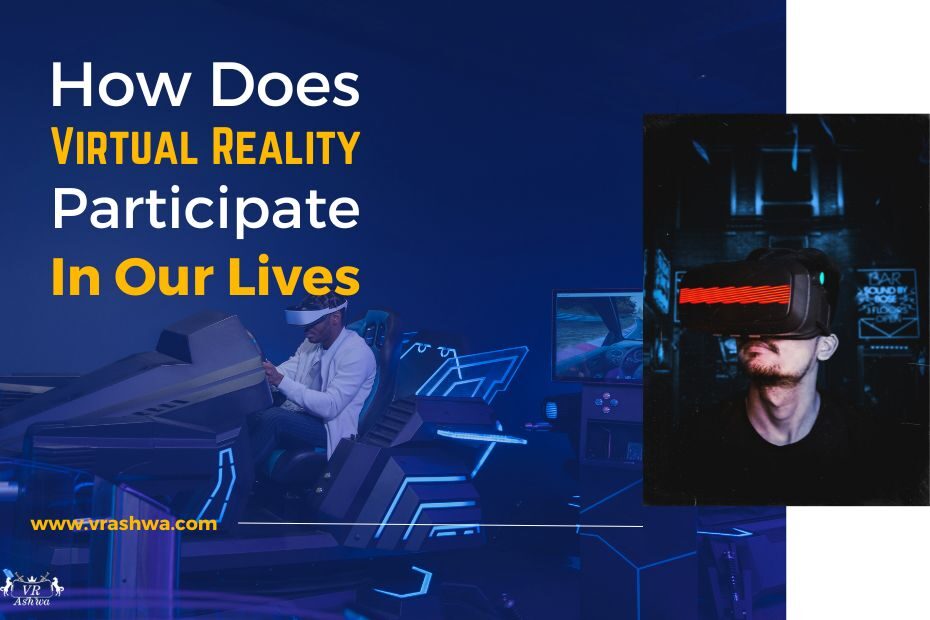We live in an era of technology that has allowed us to explore new realms without ever having to leave our homes. Virtual reality (VR) has become increasingly popular over the last few years, and this is just the beginning. VR has the potential to revolutionize the way we interact with the world. We can use VR to explore new places, simulate dangerous situations, and even visit virtual worlds.
In the business world, VR is being used to create immersive training experiences, allowing employees to learn and practice new skills in a safe environment. It is used in the medical field to treat phobias and anxiety disorders.
In the entertainment industry, it is used to create exciting and realistic gaming experiences. As technology progresses, so will the ways we use virtual reality. It will change the way we work, play, and live – and that’s something we can all be excited about.
Pros of Virtual Reality-
Virtual reality (VR) technology can play a role in our lives in various ways, depending on how it is used. Some common examples of how VR can participate in our lives include:
- Entertainment: VR can be used for gaming, movies, and other forms of interactive entertainment. It can provide a more immersive and engaging experience than traditional forms of media.
- Education and training: VR can simulate real-life scenarios for training purposes, such as in the military or healthcare. It can be an effective way to teach new skills and concepts.
- Architecture and design: VR can visualize and interact with 3D models of buildings and other structures before they are built. This can help architects and designers better understand a space’s layout and design before it is constructed.
- Therapy and rehabilitation: VR can help people with physical or mental health conditions, such as phobias or post-traumatic stress disorder (PTSD). It can provide a safe and controlled environment for people to work through their issues.
- Retail and marketing: VR can provide immersive shopping experiences or showcase products in a virtual environment. This can be a unique and engaging way for businesses to reach customers and promote their products.
Overall, VR technology has the potential to enhance and enrich our lives in several ways, depending on how it is used.
Cons of Virtual Reality-
Virtual Reality (VR) technology has many potential benefits, but it also has some limitations and drawbacks that should be considered. Here are a few potential cons of VR:
- Cost: VR systems and equipment can be expensive, which may make them out of reach for some users.
- Health concerns: Some people may experience dizziness, nausea, or other physical discomfort when using VR, especially if prone to motion sickness.
- Isolation: VR can be solitary, as users are often isolated from the physical world. This can be a concern for people who are already prone to social isolation.
- Immersion: While VR can be highly immersive, it can also be disorienting for some users. This can be particularly problematic if users need to become more familiar with the technology or use it for activities requiring a high degree of coordination or attention.
- Dependence: VR can be addictive, and some users may become overly reliant on it for entertainment or socialization. This can lead to problems such as neglecting other activities or responsibilities.
Overall, it is essential to consider both the potential benefits and drawbacks of VR technology before using it. It is also necessary to use VR in moderation and to be aware of any possible health or safety concerns.
Industries Using Virtual Reality-
Virtual Reality (VR) technology is used in a variety of industries, including:
- Entertainment: VR is used in the gaming, film, and television industries to create immersive and interactive user experiences.
- Education and training: VR is used in various fields to simulate real-life scenarios and environments for training purposes, such as in the military, aviation, and healthcare industries.
- Architecture and design: VR is used by architects and designers to visualize and interact with 3D models of buildings and other structures before they are built.
- Retail and marketing: VR is used by retailers to provide immersive shopping experiences and by marketers to showcase products in a virtual environment.
- Healthcare: VR is used in the healthcare industry for various purposes, including therapy, rehabilitation, and pain management.
- Manufacturing: VR is used in manufacturing to design and test new products and train employees on new processes and equipment.
These are just a few examples of industries that use VR technology. VR has the potential to be used in many other fields as well as it continues to evolve and become more widely available.

